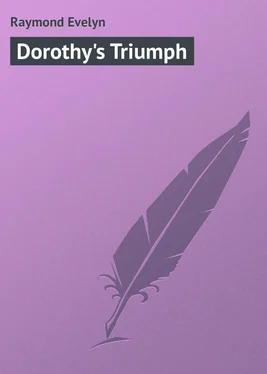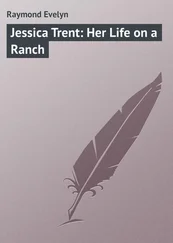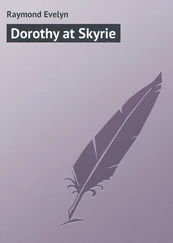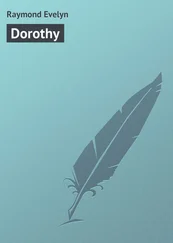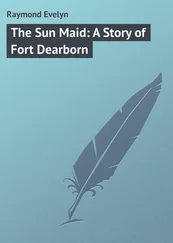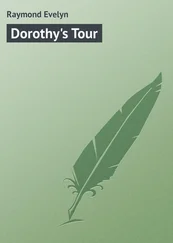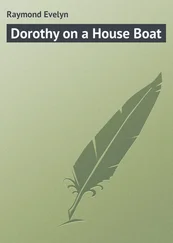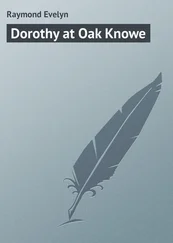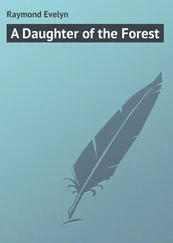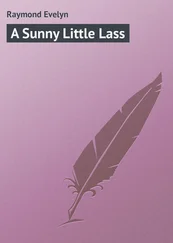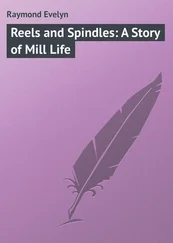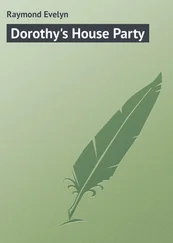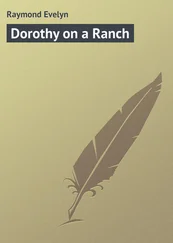Evelyn Raymond - Dorothy's Triumph
Здесь есть возможность читать онлайн «Evelyn Raymond - Dorothy's Triumph» — ознакомительный отрывок электронной книги совершенно бесплатно, а после прочтения отрывка купить полную версию. В некоторых случаях можно слушать аудио, скачать через торрент в формате fb2 и присутствует краткое содержание. Издательство: Иностранный паблик, Жанр: foreign_prose, foreign_children, на английском языке. Описание произведения, (предисловие) а так же отзывы посетителей доступны на портале библиотеки ЛибКат.
- Название:Dorothy's Triumph
- Автор:
- Издательство:Иностранный паблик
- Жанр:
- Год:неизвестен
- ISBN:нет данных
- Рейтинг книги:5 / 5. Голосов: 1
-
Избранное:Добавить в избранное
- Отзывы:
-
Ваша оценка:
- 100
- 1
- 2
- 3
- 4
- 5
Dorothy's Triumph: краткое содержание, описание и аннотация
Предлагаем к чтению аннотацию, описание, краткое содержание или предисловие (зависит от того, что написал сам автор книги «Dorothy's Triumph»). Если вы не нашли необходимую информацию о книге — напишите в комментариях, мы постараемся отыскать её.
Dorothy's Triumph — читать онлайн ознакомительный отрывок
Ниже представлен текст книги, разбитый по страницам. Система сохранения места последней прочитанной страницы, позволяет с удобством читать онлайн бесплатно книгу «Dorothy's Triumph», без необходимости каждый раз заново искать на чём Вы остановились. Поставьте закладку, и сможете в любой момент перейти на страницу, на которой закончили чтение.
Интервал:
Закладка:
“Madame, I am grateful for your kindness. No one could say more than you have, and it may be dat I vill decide to give Miss Dorothy her lessons in her own home, dat ve may both have de inspiration of de pretty trees und flowers.”
“Aside from the fact that I am anxious to see your studio,” said the girl, “that arrangement will please me greatly.”
“It vill please me to be able to show you my studio, anyvay,” said the Herr.
“How long have you been in America?” Aunt Betty wanted to know, as the Herr again turned toward her.
“I came over just after de Civil War. I was quite a young lad at de time und a goot musician. I had no difficulty in finding employment in New York City, vhere I played in a restaurant orchestra for a number of years. Den I drifted to Vashington, den to Baltimore, vhere I have remained ever since.”
“And have you never been back across the water?” asked Dorothy.
“Yes; once I go back to my old home to see my people. Dat was de last time dat I see my fadder und mudder alive. Now I have few relatives living, und almost no desire to visit Germany again. America has taken hold of me, as it does every foreigner who comes over, und has made of me vhat I hope iss a goot citizen.”
The talk then drifted to Dorothy’s lessons. Herr Deichenberg questioned her closely as to her experience, nodding his head in grave satisfaction as she told of her lessons from Mr. Wilmot at Deerhurst. Then, apparently satisfied that she would prove an apt pupil, he asked to be allowed to listen to her playing. So, at Aunt Betty’s suggestion, they adjourned to the big living-room, where Dorothy tenderly lifted her violin from its case.
As she was running her fingers over the strings to find if the instrument was in tune, she noticed Herr Deichenberg holding out his hand for it.
She passed it over. The old German gave it a careful scrutiny, peering inside, and finally nodding his head in satisfaction.
“It iss a goot instrument,” he told her. “Not as goot as either a Cremona or a Strad, but by all means goot enough to serve your purpose.”
“It was a present from my Uncle Seth,” said Dorothy, “and I prize it very highly, aside from its actual value.”
“Und so you should – so you should,” said the Herr. “Come, now,” – moving toward the piano. “You read your music of course?”
Dorothy admitted that she did.
The Herr, sitting on the stool before the large, old-fashioned instrument, struck a chord.
“Tune your instrument with me, und we vill try something you know vell. I shall then be able to judge both of your execution und your tone. There iss de chord. Ah! now you are ready? All right. Shall we try de ‘Miserere’ from ‘Il Trovatore?’ I see you have it here.”
Dorothy nodded assent.
Then, from somewhere in his pocket, Herr Deichenberg produced a small baton, and with this flourished in his right hand, his left striking the chords on the piano, he gave the signal to play.
Her violin once under her chin, the bow grasped firmly in her hand, what nervousness Dorothy had felt, quickly vanished. She forgot the Herr professor, Aunt Betty – everything but the music before her. Delicately, timidly, she drew her bow across the strings, then, when the more strenuous parts of the Miserere were reached, she gathered boldness, swaying to the rhythm of the notes, until a light of positive pleasure dawned in Herr Deichenberg’s eyes.
“Ah!” he murmured, his ear bent toward her, as if to miss a single note would be a rare penance. “Ah, dat iss fine – fine!”
Suddenly, then, he dropped his baton, and fell into the accompaniment of the famous piece, his hands moving like lightning over the keys of the piano.
Such music Aunt Betty vowed she had never heard before.
With a grand flourish the Herr and Dorothy wound up the Miserere, and turned toward their interested listener for approval. And this Aunt Betty bestowed with a lavish hand.
“I am proud indeed to know you and to have you for a pupil,” the music master said, turning to Dorothy. “You have an excellent touch and your execution iss above reproach, considering de lessons you have had. I am sure ve shall have no trouble in making of you a great musician.”
Flushing, partly from her exertions, partly through the rare compliment the great professor had paid her ability, the girl turned to Aunt Betty and murmured:
“Oh, auntie, dear, I’m so glad!”
“And I am delighted,” said Aunt Betty. “That is positively the most entrancing music I have ever heard.”
Herr Deichenberg showed his teeth in a hearty laugh.
“She shall vait until you have practiced a year, my little girl,” he said, winking at his prospective pupil. “Den who shall say she vill not be charmed by vhat she hears? But come,” he added, sobering, “let us try somet’ing of a different nature. If you are as proficient in de second piece as in de first, I shall have no hesitation in pronouncing you one of de most extraordinary pupils who has ever come under my observation.”
Dorothy bowed, and throwing her violin into position, waited for the Herr professor to select from the music on the piano the piece he wished her to play.
“Ah! here iss ‘Hearts und Flowers.’ Dat iss a pretty air und may be played with a great deal of expression, if you please. Let me hear you try it, Miss Dorothy.”
Again the baton was waved above the Herr professor’s head. The next instant they swung off into the plaintive air, Dorothy’s body, as before, keeping time to the rhythm of the notes, the music master playing the accompaniment with an ease that was astonishing. In every movement the old German showed the finished musician. Twice during the rendition of the piece did he stop Dorothy, to explain where she had missed the fraction of a beat, and each time, to his great satisfaction, the girl rallied to the occasion, and played the music exactly as he desired.
The ordeal over at last, Herr Deichenberg was even more lavish in his praise of Dorothy’s work.
“Of course, she iss not a perfect violinist,” he told Aunt Betty. “Ve could hardly expect dat, you know. But for a young lady of her age und experience she has made rapid progress. Herr Wilmot, who gave de first lessons had de right idea, und there iss nothing dat he taught her dat ve shall have to change.”
Out on the broad gallery, as he was taking his leave, the professor looked proudly at Dorothy again.
“I repeat dat I am glad to meet you und have you for a pupil. Vhen shall de first lesson be given?”
Dorothy threw a quick glance at Aunt Betty.
“Not for at least four weeks, Herr Deichenberg,” said that lady.
“Eh? Vhat!” cried the old music master. “Not for four veeks! Vhy iss it dat you vait an eternity? Let us strike vhile de iron iss hot, as de saying has it.”
“But, Herr, my little girl has just returned from a winter of strenuous study at the Canadian school of Oak Knowe, and I have promised her a rest before she takes up her music.”
“If dat iss so, I suppose I shall have to curb my impatience,” he replied, regretfully. “But let de time be as short as possible. If you are going avay, please notify me of your return, und I vill manage to come to Bellvieu to give Miss Dorothy her first lesson. But don’t make it too long! I am anxious – anxious. She vill make a great musician – a great musician. So goot day, ladies. It has been a pleasure to me – dis visit.”
“Let us hope there will be many more, Herr Deichenberg,” said Aunt Betty.
They watched the figure of the little music teacher until it disappeared through the gate and out of sight behind the hedge. Then they turned again to their comfortable rockers, to discuss the visit and Dorothy’s future.
Читать дальшеИнтервал:
Закладка:
Похожие книги на «Dorothy's Triumph»
Представляем Вашему вниманию похожие книги на «Dorothy's Triumph» списком для выбора. Мы отобрали схожую по названию и смыслу литературу в надежде предоставить читателям больше вариантов отыскать новые, интересные, ещё непрочитанные произведения.
Обсуждение, отзывы о книге «Dorothy's Triumph» и просто собственные мнения читателей. Оставьте ваши комментарии, напишите, что Вы думаете о произведении, его смысле или главных героях. Укажите что конкретно понравилось, а что нет, и почему Вы так считаете.
